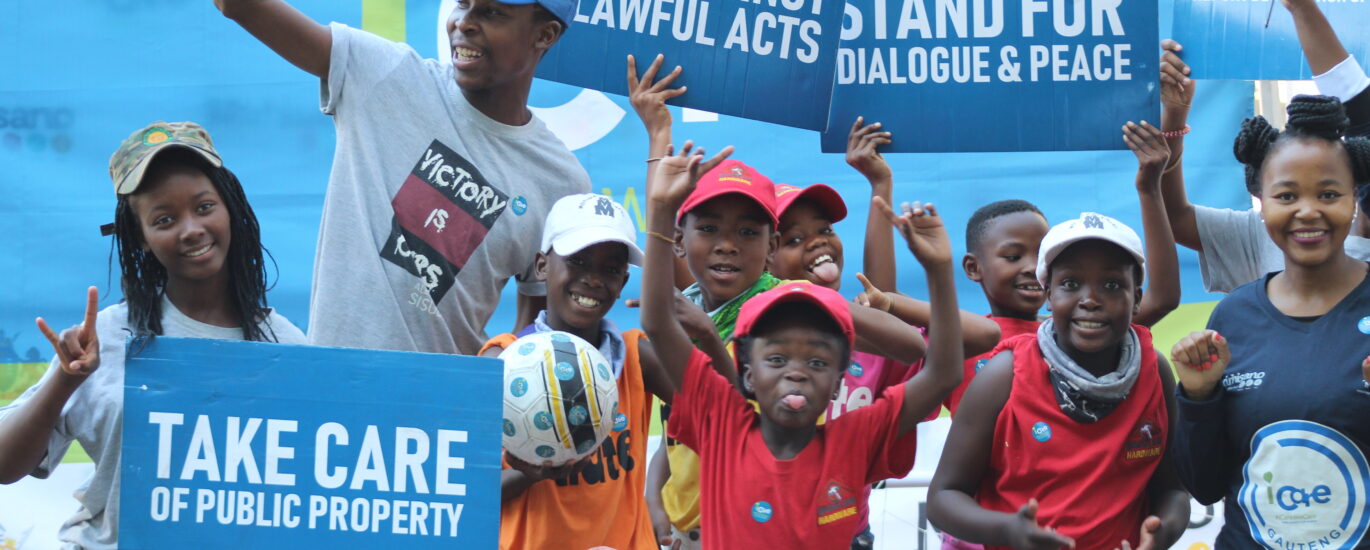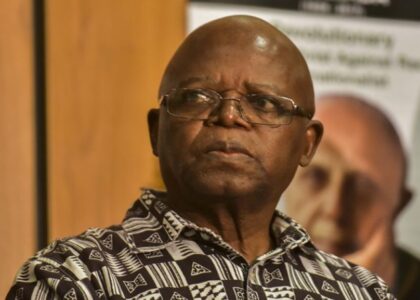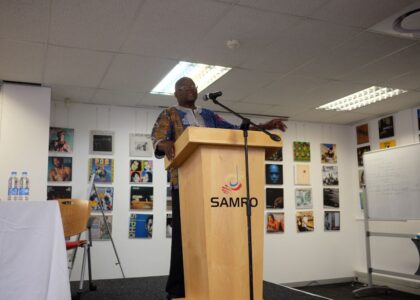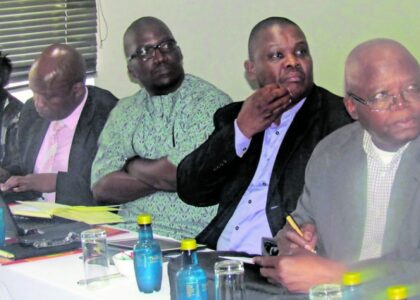28/02/2019
The Moral Regeneration Movement (MRM) has intensified the ICareWeCare campaign in several areas of the Gauteng province over the past months. Launched in 2016, the campaign is run in partnership with the Gauteng Department of Infrastructure Development (GDID) with to encourage communities to protect and take ownership of public property located in their areas. “The campaign seeks to educate communities about the negative effects of destroying public property, such as schools, hospitals, clinics, recreation facilities, libraries, and community centres,” said MRM’s ICareWeCare campaign coordinator, Mr Michael Mokobe. During the months of November and December 2018, campaign activities were undertaken at ward level in Tshwane, Johannesburg, Ekurhuleni, Sedibeng and the Westrand. Mokobe said the campaign activities included community dialogues, social media marketing, activations and the signing of pledge books. Pledge books are signed by members of the community, pledging their support to the campaign. The campaign aims to secure a million pledges by the end of March 2019. A total of 200 pledge books are circulating in different communities under the supervision MRM’s regional coordinators and community facilitators. They will be collected, verified, recorded and tallied at the end of March 2019. Dialogues were held in Ekurhuleni townships of Etwatwa, Vosloorus, Tsakane. In the Tshwane Metro, Mabopane, Memelodi and Hammanskraal also held dialogues, while in the Johannesburg Metro, dialogues where held in Eldorado Park, Poortjie and Soweto. On the Westrand, the dialogues were held in Merafong, Mogale City and Rand West City. These, according to Mokobe, were follow ups on dialogues held in 2017. The revisiting was aimed at to reinforcing the message, he added. More than 5 000 people, some of them representing community-based organisations, had attended the dialogues. The dialogues help in identifying and addressing the underlying causes of the destruction and vandalism of public property through the facilitation of community conversations, said Mokobe. “The dialogues promote local problem-solving and advance social cohesion,” he added. Other aims of the ICareWecare community dialogues include:
- Foster and facilitate dialogue within communities around the concept of “people’s property”;
- Ensure active engagement with communities on destruction and vandalism of public property and finding sustainable solutions to societal problems;
- Create linkages between various community stakeholders and between communities and the relevant policy makers;
- Provide a safe space for communities to engage without fear and to tackle difficult issues head on;
- Help build the capacity that enables communities to take ownership of this dialogue process.
Mokobe said communities were raising various issues during the dialogues and complaining about apathy on the part of the authorities to address them. “There is anger and frustration due to a lack of constant responsiveness to service delivery challenges,” said Mokobe, summarizing the views expressed by communities in the various engagements. Persisting service delivery issues, housing (RDP Houses), water and sanitation, electricity, corruption, roads, unemployment, health facilities, land and crime were among the issues being raised. Two ICareWeCare campaign activations were undertaken in Delyn Mall, Mamelodi and at the State Theatre, in Pretoria, to reach communities in city areas. On the other hand, MRM has been active in various townships, helping communities deal with issues of crime and vandalism. Following a break-in at the newly built state of the art Menzi Primary School, in Tsakane, the MRM convened a massive community meeting in partnership with the local ward councillor and the school’s governing body. The meeting, which was addressed by Gauteng education MEC, Mr Panyaza Lisufi, was attended by more than 900 community members. Following this intervention, said Mokobe, police arrested four suspects as a result of community members providing information to the cops. “This is part of the ICareWeCare campaign – to protect public property from criminals and vandals,” said a cheerful Mokobe. The campaign’s social media campaign had enlisted hundreds of Facebook likes, while the its Twitter page had registered some 800 impressions. Several dialogues are being held during this month in institutions of higher learning. It should be remembered that during violence that ensued in the wake of the #FeesMustFall protests in 2016/7 property valued at some R800-million was destroyed. The dialogues in several residential areas of the province are continuing.
Voting is a right.
Voting is your independent choice.
Voting is a moral obligation.
Voting is an act of social responsibility.
Voting is a mark of human maturity.
Voting honours the memory of Nelson Mandela and countless others whose struggle for justice brought democracy to South Africa twenty-five years ago and made it possible for us to vote today By voting you are shaping your future and that of your fellow South Africans The MRM is not naive. We are aware of certain realities about elections. They are first and foremost a contestation for political power, influence and access to state resources. Many contestants have a tendency of taking liberties with the truth. In their robust encounters they usually indulge in hyperbole which is understandable as long as it does not degenerate into blatant dishonesty or even intimidation. About this particular election, the MRM has observed the following: Whereas the liberation election of 1994 was a simple choice between apartheid, democracy and freedom, this election is more complex. Voters have a choice among 260 registered political parties Whilst the first general election somewhat envisaged a utopian society, 25 years of democracy have unearthed diversity of interests among voters An interesting feature of this election is the number of young voters, especially the so called born frees. Our system has no block votes – e.g. youth, rural, women, black or white.Unlike old democracies, where voting is a periodic ritual, ours is different because we are still consolidating our democratic gains, strengthening of democratic culture and governance institutions, fighting poverty, unemployment and glaring social inequalities. In well-developed democracies their priorities are different. The role of money in our elections has become a big factor, to the extent that the dominant social classes will in future unduly influence the outcome of elections. Hence the need to empower the poor and less educated to use their vote reasonably. As we have done in previous years, we will work closely with the IEC, organised labour, religious organisations, civil society, the media and political parties to ensure the success of this project. For example, on the one of the 2016 local government elections political parties attended the launch of our Elections project and endorsed our project in writing. We call upon the media houses and institutions to support our endeavour to ensure a free, democratic, peaceful and fair general election and to do so in honour of Nelson Mandela whose centenary we are celebrating. MRM is ready to partner with you in hosting public debates and conversations to prepare voters for the elections. One of the most common features in elections is a propensity of campaigners to indulge in hyperbole and theatrics. The public enjoys political and vibrant political debates, especially when they are televised or broadcast on radio. They are fascinated by the cut and thrust of political engagement. Candidates of political parties are the public faces of their party election manifestoes as well as their policies. Regrettably the campaign is getting tough, dirty and even life threatening. There is too much at stake. Granted that politics is a form of warfare without a bloody conflict, the use of dirty tricks to win an election is morally reprehensible. People’s reputations and even lives can be destroyed. MRM believes there is always life after every election. Given our past ten years traumatic experiences, the words of George Orwell should be a warning as well as an incentive to use our vote judiciously. In his own words: “A people that elect corrupt politicians are not victims – but accomplices!”





